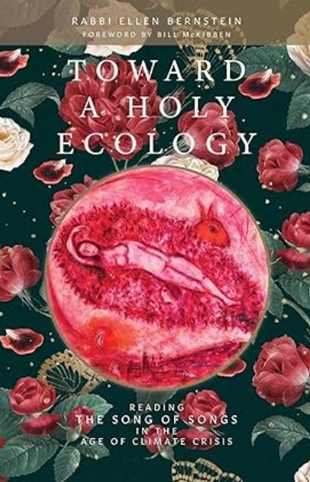Author Ellen Bernstein is a rabbi, former professor, and climate activist. In this book she opens up one of the stranger books of the Bible, shared by Jews and Christians, the Song of Songs. A mystical text, the Song of Songs alludes to sex and sexual activity, but it is usually interpreted metaphorically, as about a human being’s aspirational relationship with the Divine.
Bernstein, when noting the abundance of references in the Song to gardens, vineyards, mountains, plants, and animals, observed something new: “The Song could be understood as a meditation on our relationship with nature, animated by love.” So what once was usually a humanizing of an ancient text becomes here an exercise in deep ecology.
Bernstein’s book is part of a movement in religious studies and religious life of posthumanism and ecocentrism, in which the focus turns from human beings to the unity of all living things. She writes: “The Song sets the natural world before us with intensity and beauty and bids us to savor it with all of our senses, so that we may turn from the poem to see the natural world with renewed clarity and love. Especially for those of us who are Jews and Christians, who turn to biblical poetry for liturgy and spiritual uplift, the Song’s deep ecology may help heal us and show us what to attend to, and in doing so, teach us what to tend to.”
Memorably, Bernstein refers to the message of the Song of Songs as “wholiness,” as distinct from previous generations’ understanding of “holiness.” The majority of the book is then a fresh commentary of its text, full of poetry, with “below the line” commentary that draws out meaning, definitions, and emphases.
A foreword by Bill McKibben gives the book a broader audience. McKibben says, “As powerful as this reading is, of course, it only matters if we take it to heart — if we let it saturate us and move us to action. Because the world can be vibrant and whole, but that’s not where it’s headed at the moment.”
